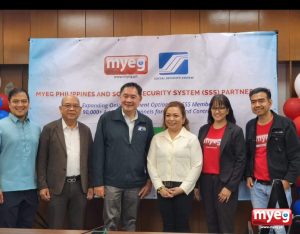Human Excellence and Encounters at a Distance: Remapping and Reimagining Ateneo Education in the “New Normal”

Benjamin Gerardo T. Tolosa, Jr.
Associate Dean for the Core Curriculum
Loyola Schools, Ateneo de Manila University
May 11, 2020
When Dr. Maria Luz C. Vilches, Ateneo de Manila Vice President for the Loyola Schools (VPLS) issued the memorandum, “Remapping Academic Life in the Second Semester, SY 2019-2020” on April 7, 2020, many were impressed by its boldness and decisiveness. People were also amazed at the swiftness of its release – on the very same day that the government extended the “Enhanced Community Quarantine” (ECQ) beyond April 15. The favorable reaction was immediate both from within and outside the Ateneo community. That night, “Ateneo” was trending on Twitter with at least 13.4K tweets.
What many people didn’t realize was that the policy decisions contained in the memo went through a grueling online discussion and revision process in the LS Vice President’s Council that began soon after the ECQ was declared. It was truly the product of communal discernment – involving not only senior LS administrators, but also other key stakeholders in the Ateneo de Manila community. Those who were consulted included members of the President’s Council, Deans’ Councils, and the Sanggunian ng mga Mag-aaral.

The highlights of the April 7 memo are already quite familiar: shortening the second semester; giving a “P” (Pass) to all eligible students (except those who had overcut or filed leaves of absence prior to the ECQ and graduating students who request for letter grades); waiving the computation of the yearly QPI and thus promoting students to the next level; providing partial refunds in tuition and fees; and making available free make-up audit classes and workshops especially for foundational courses.
These policy decisions were actually only the second part of a two-stage memo. The first part was Dr. Vilches’ March 20 memo – a response to the one issued by Father President Jose Villarin S.J. on March 17 – suspending online classes during the ECQ which had been declared the day before. But it was the second memo released on April 7 that caught the attention of the wider public and was much praised. Its main points had already been thoroughly discussed and essentially agreed upon by the LS Vice President’s Council when the first memo was issued. This anticipation of a likely extension of the ECQ beyond April 15 enabled Dr. Vilches to issue the second memo on the day the government made the announcement.
The Ateneo de Manila had scheduled a “dry run” of contingency measures on March 12-18, which included holding online classes, as the Covid-19 pandemic took shape. But the rapidly deteriorating health situation overtook these measures as face-to-face classes were already suspended by the government on March 11 and the ECQ itself was implemented on March 16. The dry run which now overlapped with the actual quarantine exposed the problems of internet connectivity for at least 12% of LS students as a Sanggunian student survey showed. As a result of the ECQ, the original plan to lend computers and portable wifi units to students (especially financial aid scholars) could not be implemented because students had to get the equipment on campus. Even faculty members also had internet connectivity problems. More importantly, the courses they had prepared for and were teaching during the second semester were designed for face-to-face learning. They had to adjust their course content and teaching methods for online delivery on very short notice. These difficulties were on top of the personal, social, and psychological challenges experienced by many individuals and families during the pandemic and lockdown. Thus in her March 20 memo, Dr. Vilches said that even as learning material are to be made available online to students, there should be no graded assessments in consideration of students who have weak or no internet access in their places of residence. If teachers are to hold synchronous classes, these sessions should be agreed upon with students, attendance should not be required, and any lectures and discussions should be recorded and made available to those who were not able to participate live.
There was a need to urgently address the anxieties of individual students and teachers regarding their academic responsibilities, amidst the continuing uncertainties of the public health and socioeconomic situation in the country. Thus the consensus in the LS Vice President’s Council was to shorten the semester and to give a “P” mark as “the most humane way of dealing with student grades under the circumstances we are in.”
Indeed more than the specific academic policy decisions – and the VPLS memo provided clear and detailed directions – it was the very compassionate and deeply caring spirit and manner in which it was written that truly touched those who read it. Dr. Vilches’ memo demonstrated how personally concerned the Ateneo is for the students’ total well-being.
As @jimmijares tweeted: “Dr. Vilches’ memo is the document equivalentof somebody comforting you while you’re in the depths of sadness. Thank you, Ateneo…history will remember the schools who stood up to care for their students; history will remember the Ateneo.” Carlo Agdamag @carlothew listed the three reasons why he loves the Ateneo even more. After citing the decisions to give passing marks and tuition refunds, he then called attention to “not one, not two, but three emoticons in a formal memo”!
Anj @janangelidc mused: “idk if senti lang ako pero punong puno ng pagmamahal at malasakit ‘yung pagkakasulat sa memo na ‘to. Thank you Ateneo for always choosing the MORE LOVING option!!! Kay sarap maging AtenistaYYYYY.” Similarly, Neil Christian @kneelreyes expressed the reason for his school pride: “Ang sarap maging Atenista hindi dahil tapos na ang semester. Kundi dahil pumapasok ako sa eskwelahang may pakialam sa kundisyon ng kapwa ko.”
Former Sanggunian President and 2019 Class Valedictorian Hya Bendaña @hyabend thanked the University for its decision and then challenged her fellow Ateneans: “Ateneo chose the most loving option for its students. Ateneans, let’s choose the same Y. For those who don’t need their refunds, please donate them to families in need. With the lockdown extension, marami pang lalong magugutom.”
The Ateneo VPLS memo triggered discussions in other university communities. Both those who wanted their schools to follow Ateneo’s lead and those who were against it called the LS decision, “mass promotion”. But the blanket term didn’t quite get the nuances of the memo which included an option for letter grades for graduating students, nor understand the links between the non-computation of the yearly QPI, LS retention requirements, and academic promotion. Furthermore, in offering to provide free make-up classes and bridging lessons, the administrators were conscious that the ECQ and the decision to shorten the semester may have created gaps in learning which need to be addressed in succeeding terms.
Moreover, the word “mass” with its connotation of a faceless, nameless collectivity gives a wrong image of how the LS administration looks at students. Dr. Vilches’ memo was precisely experienced as a loving letter expressing the Ateneo’s concern for individual students in their unique circumstances during the crisis. It was cura personalis even from a physical distance.
When the Society of Jesus founded schools, St. Ignatius and the early Jesuits saw education as “an institutional way to help students find God and their mission in life through encounters with the mystery and meaning of human life whose model and fullness is Jesus Christ.” Human excellence, not just academic excellence, is the goal of Jesuit and Ateneo education – by providing specialized professional training and holistic formation that nurtures intellectual depth, creative imagination, social involvement, and spiritual maturity (Undergraduate Education in the Ateneo de Manila University Loyola Schools, 2019).
The challenge now as our education goes online in the “AteneoBlueCloud” and our community creates an “Adaptive Design for Learning” is how to foster human excellence and facilitate human encounters that help our students discover a loving and merciful God acting in their lives and in the world. How will these experiences move them to respond in grateful and generous service to help renew the world in their own spheres of professional competence? This is truly a daunting mission in a new teaching and learning environment that we need to prepare well, work hard, and pray fervently for.
The Loyola Schools memo on remapping academic life and the way it was experienced by our community is a real sign of hope that human presence and social connectedness is possible even as we are seemingly isolated and separated from one another. It is a reassurance that we can reimagine education and recreate the “new normal” world into one that is truly humane, kind, and generous.






